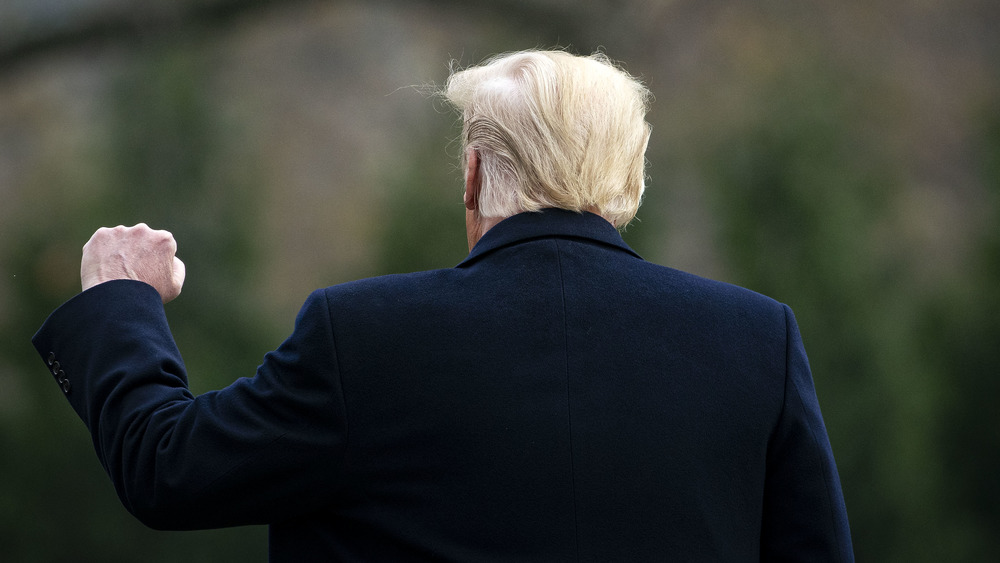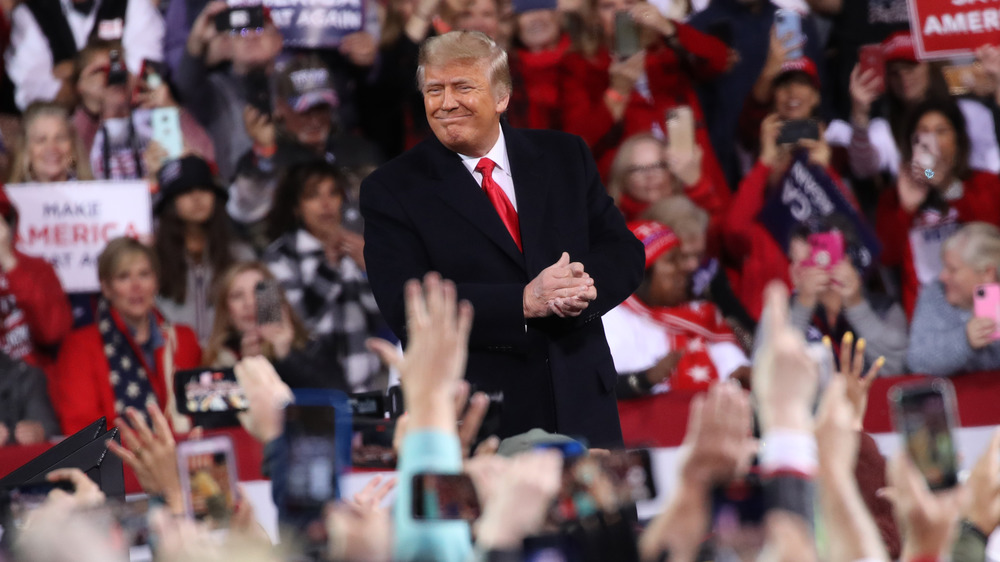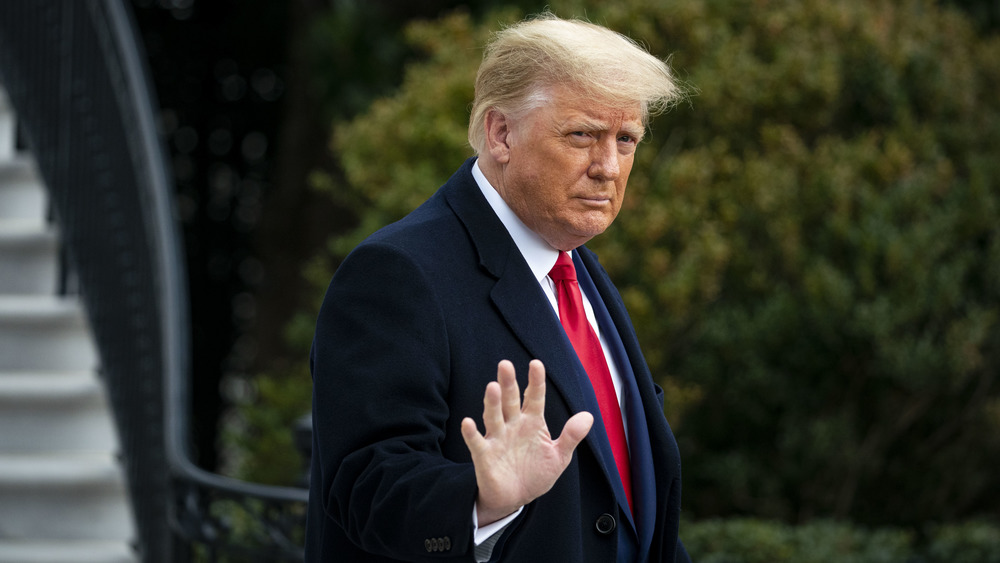This Is How Much Money Trump Will Have When He Leaves The White House
In the aftermath of Joe Biden's 2020 presidential win, some anticipate that the current occupant of the White House, Donald Trump, will be at best reluctant to exit office. It's entirely possible that Mr. Trump's 3 a.m. tweet-rambles will continue to light up the twitterverse for years to come, and his face to endlessly pass through the circuits of news punditry. People will analyze and dissect and try to make sense of his presidency for years to come. And Trump's wealth, come and go as it has, remains an additional source of confusion and debate.
Trump was a billionaire long before he was the billionaire-in-chief. In his 2016 campaign, as Rolling Stone tells us, he used to brag that his wealth exceeded $10 billion. At that time, The Federal Election Commission disclosure form pegged him somewhere closer to $8.7 billion. Forbes said $4.6 billion. And now, since Trump has finally released his tax records, as Business Insider explains, his current wealth stands at about $2.5 billion. This is down $600 million from 2019, per Forbes, and his properties are down in value across the board, particularly in Miami, where they're down 80 percent in value, to $28 million. He's facing multiple lawsuits when he leaves office, as CNN outlines, over everything from incorrect evaluation of assets to obstruction of justice, for which he might have to resort to financial settlements.
So when all is said and done, and Trump leaves office, how much money will he actually have?
When all is said and done: richer than before
When looking at Trump's future finances, we've first got to look at his presidential salary. As stated on Business Insider, presidents earn $400,000 a year, and ex-presidents receive a lifelong pension of about half that figure (Obama received $207,800 in 2017, for instance). And per the Former President Act, ex-presidents receive not only health and security budgets for life, but annual vacation budgets. These figures might not mean a lot to a billionaire like Trump, but they at least cover plenty of expenses.
Supporters of President Trump have made mention of his campaign promise to work for free as president — that with his personal wealth, he had no need of the presidential salary, and would in fact donate its equivalent. Records indicate that he's fulfilled that 2015 promise. Politifact points out that by law, the president must be paid, and so Mr. Trump has donated the equivalent of his presidential salary to various federal agencies. He's written checks quarterly, equal to his presidential compensation. USA Today reported last July that in 2019, Mr. Trump made donations to the Department of Agriculture, the U.S. Surgeon General's Office, the Office of the Assistant Secretary of Health, and the Department of Health and Human Services.
He isn't the first president to forego a salary
He isn't the first wealthy man to hold the office of president, nor is he the first president to take a pass on the salary. USA Today further reports that two previous presidents, John F. Kennedy and Herbert Hoover, were both wealthy in their own right when they were elected, and donated their salaries. Another Politico post reports that the first president, George Washington, refused compensation — he, too, had private wealth — but the law being the law, agreed to accept payment of $25,000 for his governmental service.
On the other hand, despite his wealth, Mr. Trump has made some (in hindsight) bone-headed business decisions, like Trump University, Trump Steaks, and Trump: The Game (true story). He's filed for Chapter 11 bankruptcy multiple times, as the American Bankruptcy Institute shows. A number of suits are still in progress, including one over Trump University, with its fake instructors and unaccredited degrees, for which Trump is the subject of two-class action lawsuits, and a third suit in New York for $40 million.
But because justice truly is blind, Trump has also come into a windfall of money as a result of last-minute, 2020 campaign donations. As Campaign Legal tells us, the 2020 election was the most expensive in history, at $14 billion, and only about 60 percent of Trump's fundraising money is needed to cover his campaign. And the rest? Even after paying all his legal expenses, per Yahoo News, he'll still be left with "tens of millions" more.


